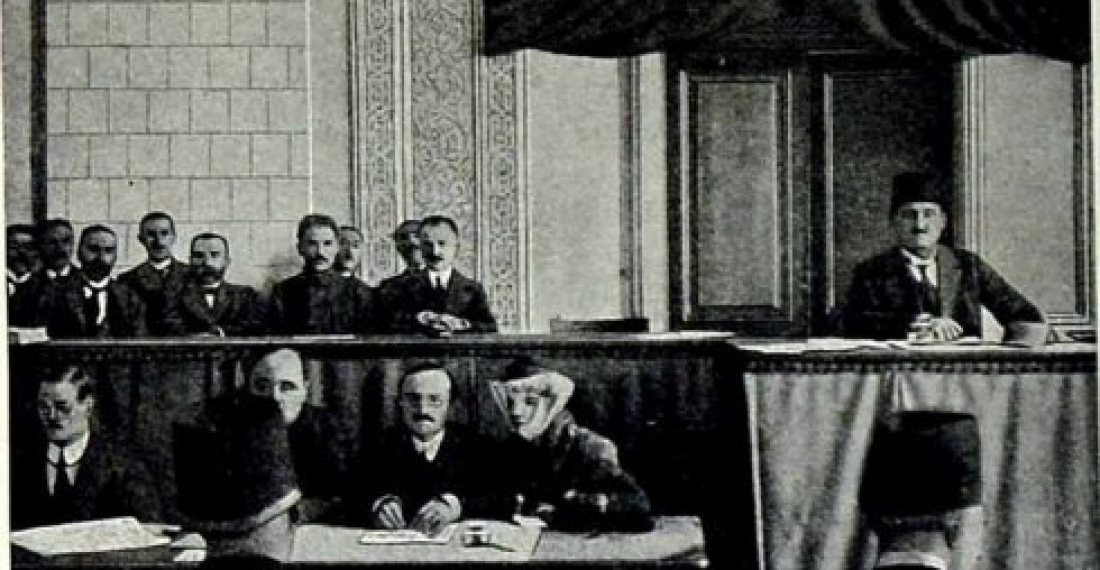Славная, но непродолжительная независимость Армении, Азербайджана и Грузии в начале XX-го века продолжает определять современную историю трех стран и коллективную память трех нации.
Три республики Южного Кавказа - Армения, Азербайджан и Грузия празднуют 99-ю годовщину своей короткой независимости, о которой было объявлено в конце Первой мировой войны в 1918 году. После распада Российской Империи, большевистской революции и националистической волны, охватившей восточную Европу, политические лидеры трех стран, внимательно следившие за происходящими событиями в мире, объявили о своей независимости.
Южный Кавказ был отдаленным, во многом забытой частью мира. Попытки новых правительств в Армении, Азербайджане и Грузии добиться признания и поддержки победоносных держав на Парижской конференции были лишь частично успешными. Не в первый и не в последний раз великие державы рассматривали регион через русскую призму. В конце концов, получив незначительную поддержку или же не получив ее вовсе, три страны поддались давлению со стороны большевистских сил и в конечном итоге были поглощены Советским Союзом. Лишь в 1991 году, в очередную трудную минуту для Российского государства, три страны снова начали добиваться и добились успеха в вопросе восстановления своей независимости.
Независимость Азербайджана была объявлена 28 мая 1918 года в Тбилиси, Грузия, так как большая часть Азербайджана в то время находилась под контролем большевиков. Декларация была принята в том же зале, где за два дня до этого была объявлена независимость Грузии, в здании на проспекте Руставели. Через несколько дней правительство перебралось на север Азербайджана, в город Гянджа, а затем в Баку, где 7 декабря 1918 года состоялось первое заседание нового парламента Азербайджана. Первым председателем Национального совета стал Мамед Эмин Расулзаде и сегодня его признают отцом современного азербайджанского государства.
В тот же день была объявлена независимость Армении. Республика была создана на армянонаселенных территориях раздробленной Российской Империи, известной как Восточная Армения или Русская Армения. Лидеры правительства состояли в основном из Армянской революционной федерации (АРФ или Дашнакцутюн).
Грузия объявила о своей независимости за два дня до этого, 26 мая 1918 года. Временное правительство Грузии возглавлял Ное Рамишвили, а затем Ное Жордания. Парламент Грузии был официально созван 8 октября 1918 года, а его новым председателем стал Карло Чхеидзе.
С первых дней независимости эти три республики страдали от внутренних потрясений и внешнего давления. Но именно тот факт, что все три имели территориальные споры друг с другом и со своими соседями, были их самой большой проблемой. Великие державы на Парижской конференции, хотя и де-факто признали эти три государства, все же не решались признать их формально частично из-за проблемы нерешенных границ. Руководители трех республик не сразу осознали опасность этого, и большевистские силы впоследствии смогли свергнуть националистические правительства и организовать аннексию республик в составе Советского Союза.
Краткая, славная, но болезненная история независимости 1918 года Армении, Азербайджана и Грузии продолжает определять современную историю трех государств и влиять на коллективную память трех народов. В следующем году три страны готовятся отпраздновать столетие этих событий и это самое подходящее время для того, чтобы они извлекли уроки из этой истории и консолидировали свой нынешний суверенитет.
Редакционная коллегия Commonspace.eu поздравляет народ Армении, Азербайджана и Грузии с Днем независимости.
Источник: commonspace.eu
Фото: Первая сессия Парламента Азербайджана, проходившая в Баку 7 декабря 1918 года.







